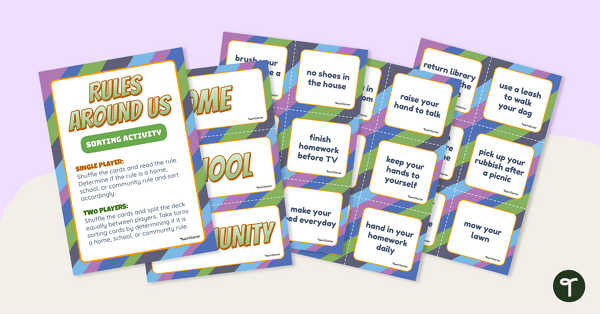Australian Curriculum V8
ACHASSK071
Who makes rules, why rules are important and the consequences of rules not being followed
Elaborations
- developing and justifying a set of fair rules and consequences for the class (Skills: Literacy, Critical and Creative Thinking, Personal and Social Capability, Ethical Understanding)
- identifying familiar rules, how rules protect the rights of others, what their responsibilities are to others, and the consequences when rules are not followed (Skills: Literacy, Critical and Creative Thinking, Personal and Social Capability, Ethical Understanding)
- considering why rules differ across contexts (for example, a library, the playground, in class, at home, in games and in cultural groups) (Skills: Literacy, Critical and Creative Thinking, Personal and Social Capability, Ethical Understanding, Intercultural Understanding)
- discussing situations where it is not fair to have one rule that treats everyone the same, if some people (for example, students with a disability) have different needs or would be unable to follow the rules (Skills: Literacy, Critical and Creative Thinking, Personal and Social Capability, Ethical Understanding)
- exploring cultural norms behind some rule-making (for example, removing shoes before entering places of cultural significance) (Skills: Literacy, Critical and Creative Thinking, Personal and Social Capability, Ethical Understanding, Intercultural Understanding)
- identifying who has the authority to make rules (for example, at school or in a sporting club) (Skills: Literacy, Critical and Creative Thinking, Personal and Social Capability)
Show more
1
teaching resource for those 'aha' moments
